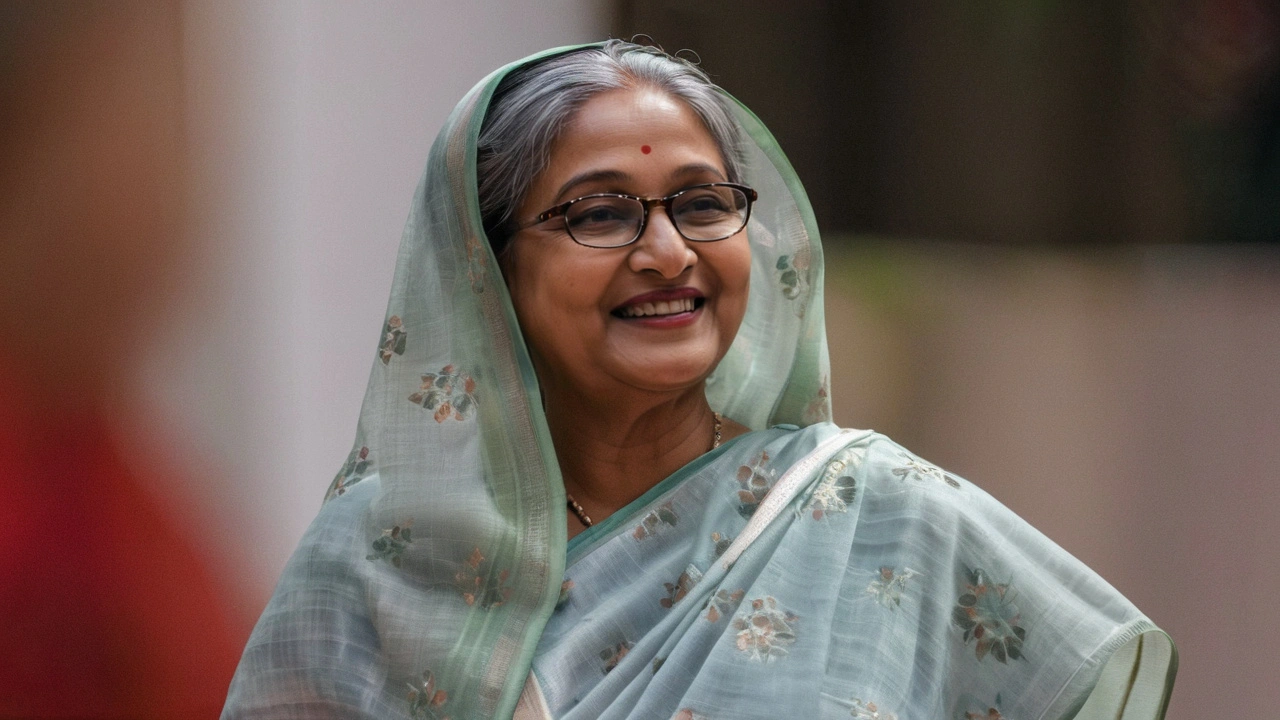Bangladesh in Turmoil: PM Sheikh Hasina Resigns Amid Violent Protests, Flees Country
 Aug, 5 2024
Aug, 5 2024
Introduction
Bangladesh is currently undergoing a significant political crisis following the resignation of Prime Minister Sheikh Hasina. The resignation comes as a result of weeks of escalating protests that have rocked the nation. The turmoil, which started over a controversial job quota system, has cost nearly 100 lives in a single day and more than 200 over the past month. The country now finds itself in a state of uncertainty, awaiting further developments and a statement from the new interim government led by the army chief, General Waker-Uz-Zaman.
The Initial Protests
The protests initially began as student demonstrations against a job quota system that many found unfair. The system was seen as favoring the descendants of the 1971 freedom fighters, which the students argued undermined meritocracy. These demonstrations quickly gained momentum, attracting a wider spectrum of the population and turning into broader demands for Prime Minister Hasina’s resignation.
What started as peaceful protests soon turned violent. Security forces attempted to disperse the crowds using force, which only added fuel to the fire. Clashes between protesters and police became increasingly common, and the death toll began to rise. Reports from last Sunday indicate that nearly 100 people lost their lives in violent clashes, a grim milestone in the conflict.
Implementing Drastic Measures
In an attempt to regain control, the government imposed a nationwide curfew and shut down the internet. These measures, however, did little to quell the unrest. The protesters were relentless, continuing to march towards the capital, Dhaka, despite numerous obstacles. The streets of Dhaka and other major cities were filled with demonstrators, demanding Hasina’s resignation.
The persistence of the protesters and the scale of the unrest made it increasingly difficult for the government to maintain order. In a televised address, army chief General Waker-Uz-Zaman confirmed that Prime Minister Hasina had resigned and fled the country. He also announced the formation of an interim government, a significant development in the ongoing crisis.
An Interim Government Takes Over
The formation of an interim government by the military adds a new layer of complexity to the situation in Bangladesh. While the interim government promises to stabilize the nation, its ability to do so remains uncertain. The current administration faces the enormous challenge of addressing the root causes of the unrest and restoring public trust.
The international community has called for an immediate end to the violence and for dialogue among all parties. However, with the country still engulfed in protests and facing a significant death toll, achieving peace will not be easy. The resignation and departure of Sheikh Hasina, a long-standing political figure in Bangladesh, marks a pivotal moment in the country’s history.
International Reactions and Implications
The turmoil in Bangladesh has attracted significant international attention. Various human rights organizations and foreign governments have expressed their concerns over the violence and the loss of life. Many have urged the interim government to prioritize the safety of its citizens and to seek peaceful resolutions to the underlying conflicts.
The political instability in Bangladesh also has broader regional implications. As a country with a population of 170 million, Bangladesh's stability is crucial for the security and economic progress of South Asia. Neighboring countries are closely monitoring the situation, aware that any prolonged instability in Bangladesh could have ripple effects across the region.
Conclusion
As Bangladesh braces itself for the next chapter in its political saga, the citizens remain on edge, grappling with uncertainty and hoping for a peaceful resolution. The protests that began over a job quota system have evolved into a larger movement demanding change. With the resignation of Prime Minister Sheikh Hasina and the establishment of an interim government, the country stands at a crossroads.
The international community's role will be critical in the coming days and weeks, offering support and urging restraint among all parties involved. For now, all eyes are on Bangladesh, watching closely as the nation navigates through this turbulent period.